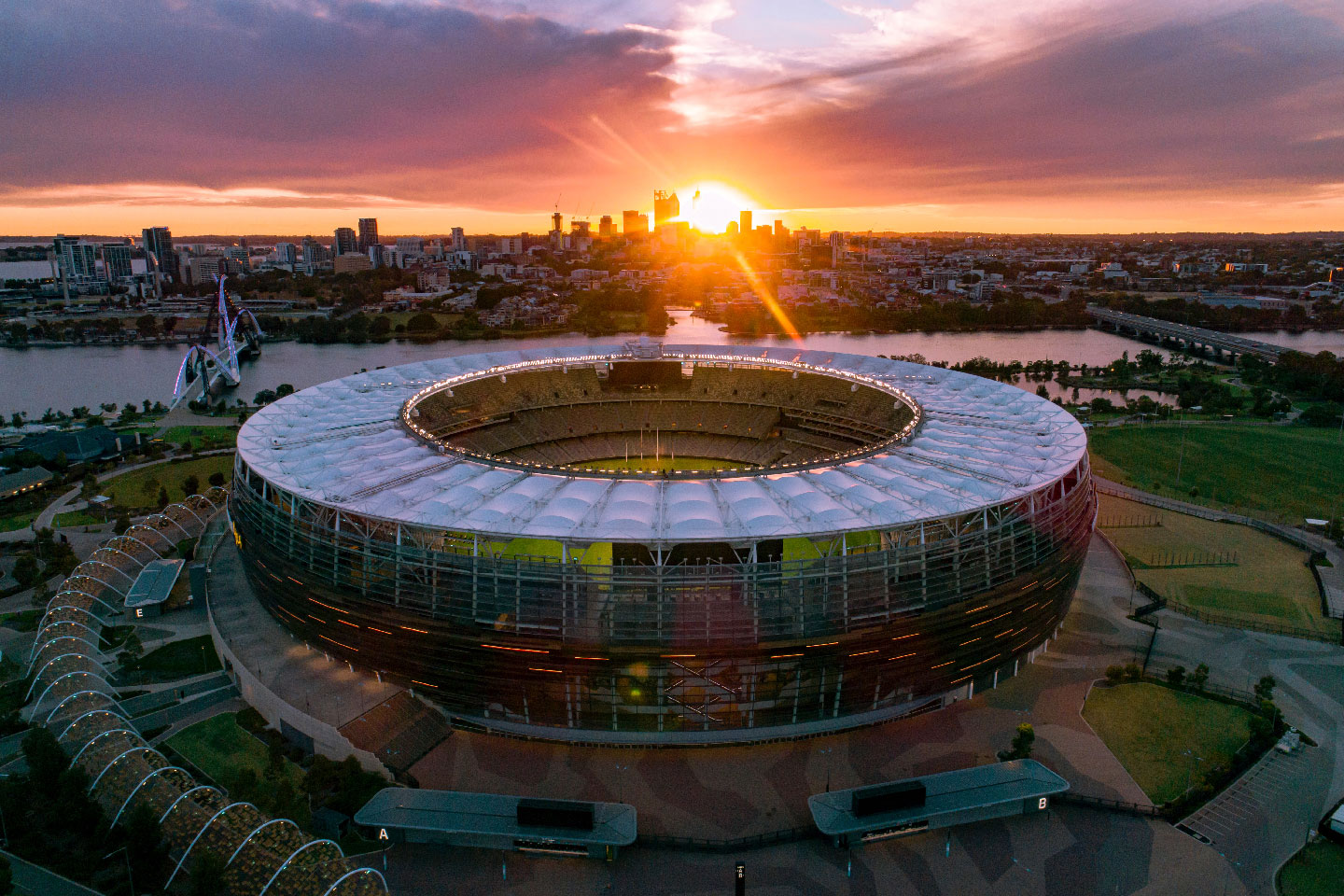

It was time to pull out all the stops when a delegation of nine international dignitaries landed in Perth to assess the State’s bid to host the Special Olympics World Games in 2027.
During the six-day stay, the group were shown a variety of venues including the multi award-winning Optus Stadium (which is proposed as the opening and closing ceremony venue), RAC Arena, WACA, HBF Stadium and the Swan Valley among others. There was also time to experience some of the city’s tourist attractions too, including Perth Mint, Rottnest Island for that all-important quokka selfie, and the Crown complex, to view accommodation and hear about the Crownability employment program.
Perth-based Director of Special Olympics Australia Tanya Brown introduced the delegates to local VIPs too including cultural advisors, the Lord Mayor of Perth and His Excellency the Honourable Chris Dawson, Governor of Western Australia. Dinner at Government House on October 13 included among the guests Ambassador Caroline Kennedy and US Consul General Siriana Nair. On the following day, a SOA (WA) fundraising lunch raised $350,000 – adding to a cumulative total of over $2.5million having been raised in cash and VIK by SOWA over the past five years.
In assessing Perth’s offering, the delegates, some of whom are former athletes, were looking for certain qualities.
Three key qualities were essential for a winning bid: motivation, impact and legacy; commitment to social inclusion and event concept and operations.
Australia’s bid has already been successful in communicating a vision to make Australia the most inclusive and accessible nation, by using sports as a catalyst to change views, change lives, change the nation and change the world.
In addition to creating a world-class experience for athletes, the delegates recognised that the Perth bid had identified how World Games can benefit families of people with intellectual disabilities, communities, other marginalized groups, the country-at-large and neighbouring nations.
For such a significant event, the work behind the scenes to lodge Australia’s bid has been intense – but should the nation be successful, the benefits will be huge. According to Ernst & Young who helped prepare the business case in 2021, there will be a healthy return on investment of $212 million, as well as the knock-on effect of spotlighting Perth and other Australian cities to a world-wide audience.
The bid has the support of over 100 businesses, governmental entities, sports federations, non-profit organisations and prominent individuals including the Telethon Kids Institute, the University of WA and consulting firms Deloitte, and Ernst & Young.
Beyond the fact that there would be no requirement for significant spend on infrastructure, data is at the heart of the bid’s success to date. A data-driven approach to measuring legacy impact has clearly impressed the delegation who visited Perth, as well as evidence of engagement with and inclusion of Indigenous Australians in World Games plans.

This includes Welcome to Country celebrations, smoking ceremonies, art displays and even naming accommodation clusters with traditional languages (for example, Boorloo instead of Perth CBD, Derbarl Yerrigan instead of Swan River).
“We have been granted cultural passage by the most senior elected Matriarchs of the Noongar Nation, whom together through the catalyst of sport, we all collaborate in this inclusion revolution,” said Ms Brown.
Special Olympics World Games are the world’s largest sports and humanitarian event with the far-reaching effect of educating the public about people with intellectual disabilities, changing perceptions through each event and addressing barriers to inclusion.
Delegates were impressed with evidence of seeing diversity and inclusion in sport becoming a bigger part of the national conversation, aligning with Special Olympics’ mission as a whole. The bid is also grounded in the United Nations Sustainable Development Goals.
If the 2019 World Games in Abu Dhabi are anything to go by, the long-term after effects of Australia and Perth hosting the event in 2027 could be life-changing.
“During the Games, total media impressions were 69.1 billion with a reach of over 760 million households through television broadcast,” said Lou Lauria, Chief of Sport & Competition, Special Olympics International.
“The state oil company ADNOC launched a recruitment and employment program inclusive of people with intellectual disabilities and 31 pieces of legislation and initiatives were launched, making every public school a Unified Champion School.”
All eyes will be on Berlin from June 17 to 25 next year when the German city hosts World Games with up to 7,000 athletes from 190 countries, competing in 26 sports in front of an estimated 500,000 spectators.
Whether it will be Australia’s turn in the spotlight in 2027 remains to be seen – the announcement of the final winning bid will be made in early 2023.





